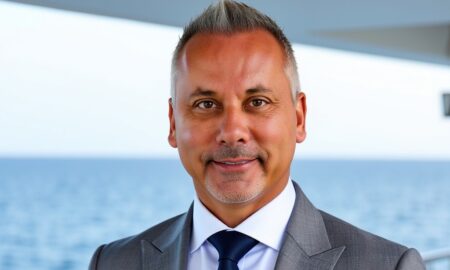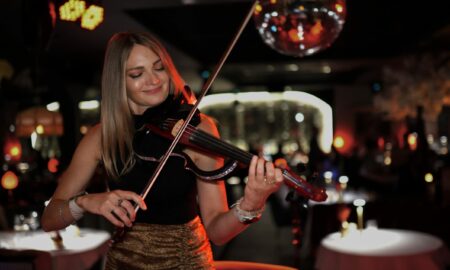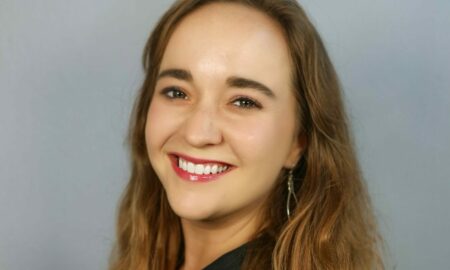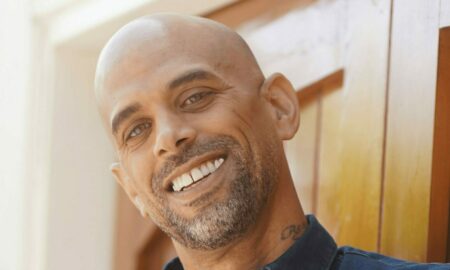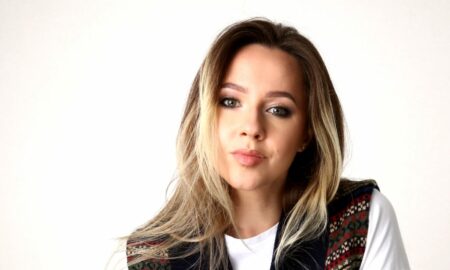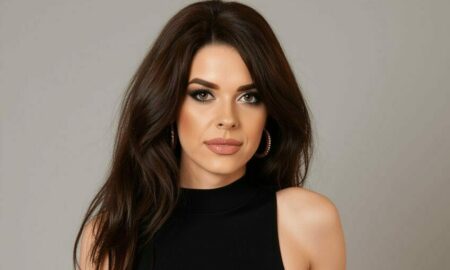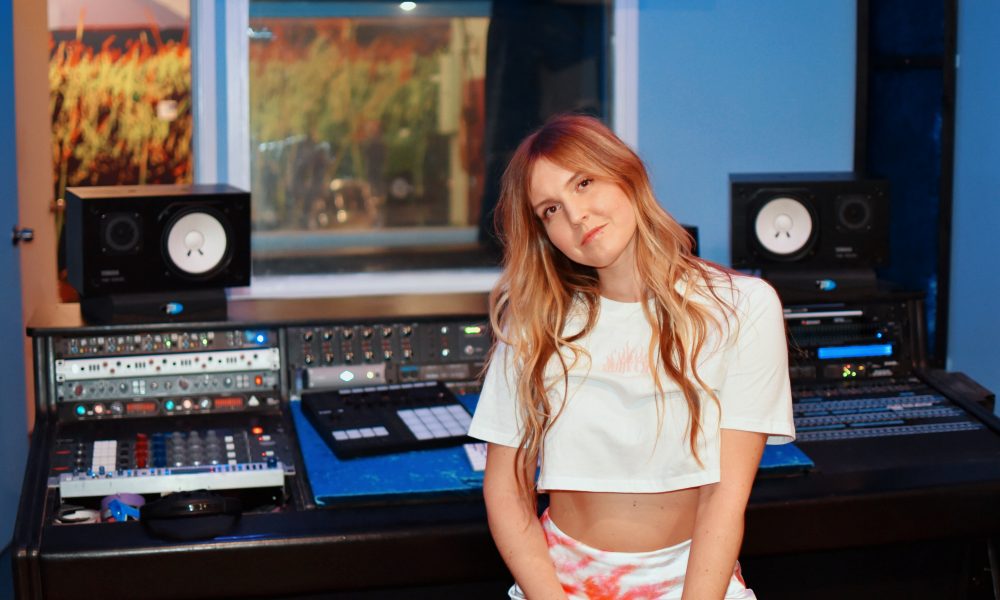

Today we’d like to introduce you to Claire Morison.
Hi Claire, so excited to have you on the platform. So before we get into questions about your work-life, maybe you can bring our readers up to speed on your story and how you got to where you are today?
I recognized pretty early on that music was a huge grounding and life-affirming force for me. In order to be closest to that, I knew my career would have to be within the industry. I grew up in a small town in Montana, and after high school, I moved to LA to study recording arts at Loyola Marymount University. I found that the technical process of making music streamlined the creative and I truly enjoyed both parts of the process. I also found purpose in the very real human connection that is a huge part of making a record – there is such vulnerability and intimacy required when making and helping someone refine their art, and it can build and lead to some really wonderful relationships and impactful experiences. I’ve been working as a freelance recording and mixing engineer for the last seven years. I’ve been hired as an independent contractor by studios as well as personally hired by artists to produce and engineer different projects.
Bedrock.LA (in Echo Park) and Comp-ny (in Glendale) were the primary homes of the studios I grew up in and gave me the freedom to grow and enhance my skills with some financial stability. I’ll always be grateful to them for providing me so much opportunity. In the middle of this year, I was offered an incredible opportunity to open and run my own recording studio. I opened Wild Horizon Sound in late October (with COVID restrictions in place, of course) which is my new studio home in West Hollywood. The name is an homage to Montana, where I could have only dreamed of this reality. Through the unwavering support of my business partner, Tice Griffin, and of course the opportunity and guidance provided by the studio’s previous owner, Danny Balistocky, we have actually managed to make something like my dream come true.
Would you say it’s been a smooth road, and if not what are some of the biggest challenges you’ve faced along the way?
I’m not sure anyone has experienced a completely smooth road to “success”. My version of success – being able to support myself through my creative work and passion, has come mostly just through doing the work. For about ten years now. Long hours, low pay, sacrificing sleep, social life. Doing “the work” can be lonely! The music industry is certainly demanding of one very valuable human resource: time. And as much as it creates relationships, it can also put strain on them. Now, I try to find balance as best I can. I operate better creatively if I’m taking care in all aspects of my life, but for a long time I didn’t have that luxury. It takes stamina to survive that for years and years, almost more so than talent or passion. Inspiration can only take you so far – dedication requires doing the work regardless.
Can you tell our readers more about what you do and what you think sets you apart from others?
As a recording and mixing engineer, I consider myself to be the “midwife” of the musician and their creative process. I take an artist’s work and vision and make informed technological and creative choices in order to best deliver a finished project that reflects their artistic self (and sounds great). In engineering and production work, I make choices regarding instruments and amps, collaborate on writing parts or rearranging songs, choose microphones and outboard gear in order to create the sounds and tones contributing to the character of the record; at other times, simply to best capture the original work at a higher quality with the most artistic integrity. As a mixing engineer, I refine these sounds and make similar choices regarding what is most paramount to the song – what must be heard and how cohesive the supporting parts should be, how all recorded tracks can work together to reflect the original vision; to decide if there is something to gain by creating space where there is none, or by experimenting and changing the original recorded sound. Mixing can be a great place to be creative.
However, I’ve also found if the record is really, truly accurately captured during the first two steps (production and recording), the project is sometimes better served using mixing as a process to simplify and refine; to subtlety enhance the experience of the listener. Another huge part of the process for me is creating a relationship with the artist. This happens in both a one-time session or a year-long record. My goal is to create a space for the artist to feel most connected to their work, and that often requires a lot of vulnerability. I aim to maintain a comfortable and intuitive creative environment where people can let their guard down. A performance where the artist trusts me – trusts me to capture their work, trusts me to push them for a better performance, trusts me to make decisions that will ultimately shape the sound of the record – makes for a better performance than an artist who feels uncomfortable, or nervous, or judged. I also absolutely love what I do. I want someone to be able to enjoy spending sometimes up to twelve hours in a windowless room with me. The majority of the time I’m having a lot of fun while I work, and I want the people surrounding me to feel that and want to participate.
The crisis has affected us all in different ways. How has it affected you and any important lessons or epiphanies you can share with us?
Keep your head up! I felt so defeated when everything first got shut down. I was so happy with my life as it was before, I felt a huge sense of grief losing that, losing the ability to do what I love and what gives me purpose. And I understand that while my opportunity (opening my own studio) was a rare one, it also happened because I felt forced into change. Change is often hard and uncomfortable, but it sparks so much growth. I made a big investment and took a big risk starting my own business in the middle of a global pandemic, but I couldn’t imagine not doing this – not trying with everything I have to succeed in spite of difficult circumstances. If I failed tomorrow and lost all the money I invested, I wouldn’t regret a thing. I think that’s the kind of crazy you have to be in a creative industry. You have to be able to adapt, and you have to be willing to take risks constantly. And it’s not easy, but I wouldn’t be the person I am today if I wasn’t ever challenged or I didn’t persevere. And I wouldn’t have it any other way.
Contact Info:
- Email: [email protected]
- Website: www.wildhorizonsound.com
- Instagram: https://www.instagram.com/wildhorizonsound/






Image Credits
Cover photo by Emily Daniels; Angela Izzo, Josh Beavers, Emily Daniels, Brittany Mueller, Emily Daniels, Emily Daniels













